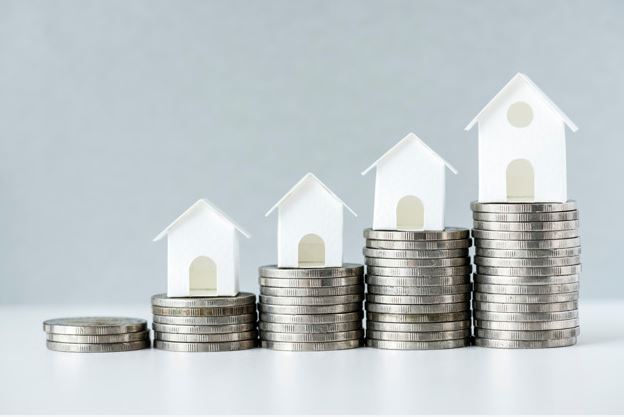For every home loan, there are two components: the principal – the amount you borrow to purchase your property – and the interest. Interest rates are the proportion of a loan charged as interest to you, the borrower. Normally, it’s expressed as a percentage of the principal, charged by the lender to a borrower for the use of their money.
How they are determined is a more complex discussion. In short, they’re set by the bank but are influenced by different factors at any one time – this is why they’re constantly changing. A bank lends money out at a slightly higher interest rate than someone who’s earning interest on their savings. Banks use deposits as a source of funding, and also borrow from the Reserve Bank of New Zealand. The Official Cash Rate (OCR) is set by the Reserve Bank, which can also affect home loan interest rates.
When you apply for your home loan, your bank will apply the interest rate available to you at that time of approval.
If you were to use a $70,000 deposit to purchase a residential property at $470,000, you will receive a rate based on your low equity deposit. With a low equity deposit, or a deposit below 20%, you can expect to pay more in interest on your loan, plus a percentage of the margin. This rate is higher due to the ‘risk factor’ – and is a requirement – often called LMI (Lender’s Mortgage Insurance). All banks have a set percentage of total home lending that can be approved with less than 20% deposit. Your total interest* portion of your repayments on a 30-year loan term will be $1,416.67 per month.
Now, if you were to have a 20% deposit, based on a house purchase price of $500,000, your interest rate would drop to a ‘special rate’, for arguments sake let’s say it’s 3.45% for two years (at the time of publishing in the current market). Across the term of this fixed period, this rate would reduce your interest repayments to $1,150.00 per month.
Knowing how much you can afford in your weekly or monthly repayments is important to ensure you’re not overextending. If you’re looking to get your finances sorted, but don’t know where to start, give the team at Lugtons a call. We may not be able to provide you with financial advice but we can direct you towards industry-leading professionals who can.

